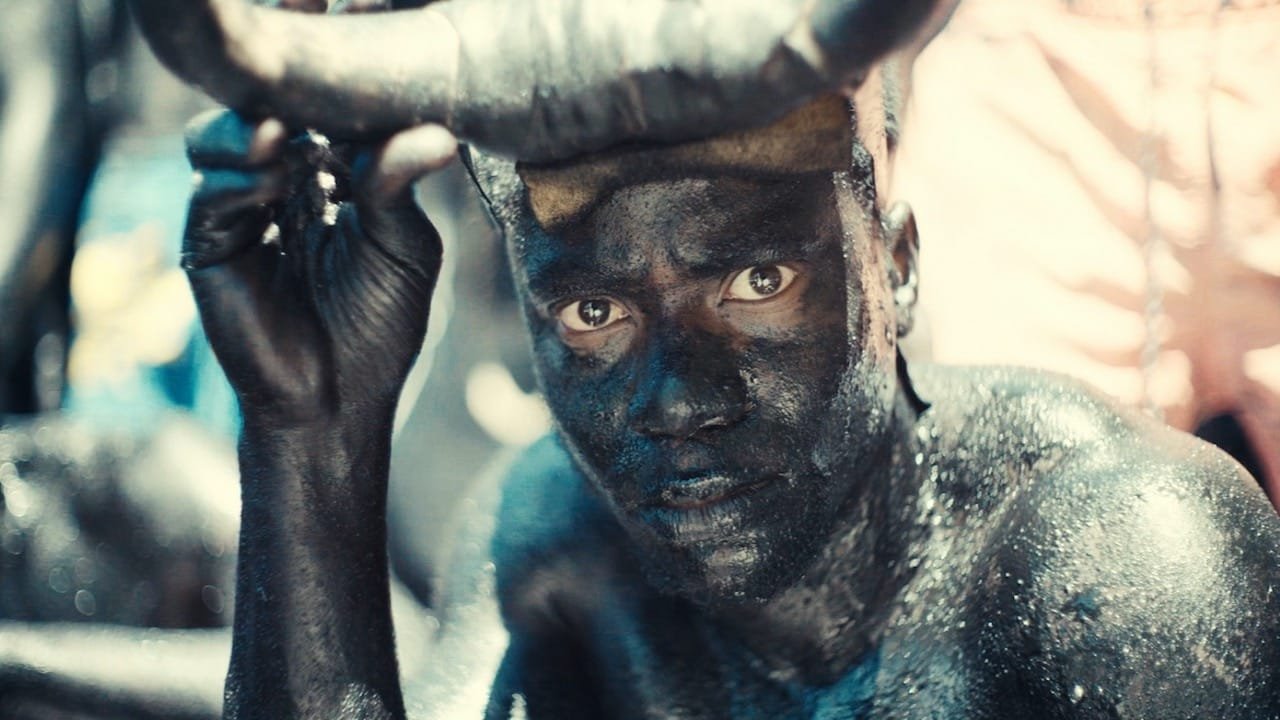Kanaval: A People’s History of Haiti in Six Chapters
In the lead-up to the annual Jacmel Mardi Gras, performers relate their own personal histories as well as the stories of their carnival characters, which represent moments and people from the distant, and not so distant, Haitian past.
Kanaval: A People’s History of Haiti in Six Chapters, Leah Gordon, Eddie Hutton-Mills
“But what has really left Haiti in such a state today, what makes the country a constant and heart-rending site of recurring catastrophe, is its history.” Exclaims the Guardians Jon Henley in his historical deep dive Haiti: A Long Descent into Hell. Since Christopher Columbus claimed the land for the Spanish crown in 1492 Haiti (or then, Ayiti) has withstood slavery, revolution, debt, deforestation, corruption, exploitation and violence; nonetheless, it’s population not only regard its history, but celebrate it.
Kanaval: A People’s History of Haiti in Six Chapters (2022) is seldom an analysis of the festival itself, but a reflection of the countries history through the lens of celebration and remembrance. Told in six chapters by six narrators, Kanaval’s tense juxtaposition of colour, virtue, and theatre with vitriolic uprising and gloom underscore what directors Eddie Hutton-Mills and Leah Gordon want to scrutinise - the countries necessity for education.
“Kids today don’t know who Charles Oscar was.” Lauture Joseph Joissaint explains, a reminder that his Chaloska troupes greatest motivator is their ability to perform caricature to demonstrate their countries fierce political history. Haiti’s stage for historical reminder and celebration is theatre - a stage beautifully illustrated throughout Kanaval in cluttered closeups and colourful dance sequences.
“Despite Kanaval’s short runtime, time stands still and audiences’ attentions are demanded”
Hutton-Mills and Gordon’s use of narration and subsequent focus on grammar further emphasises the importance of this celebration. The narrators reminisce on their abilities to ‘do’ Carnival - the act of celebrating the festival a merit to the respect they have for their country. Edited in between troupes taking the street is archival footage - the blend of Haitian celebratory language and cinematic language a wild cacophony of ideologies. Martyrdom, political upheaval, and strict patriotism carefully accent these scenes as, despite Kanaval’s short runtime, time stands still and audiences’ attentions are demanded.
However, most importantly, Kanaval is bookended by Nicholas Britell’s Agape (best known for Barry Jenkins’ If Beale Street Could Talk (2018)). Throughout Kanaval, narrators reiterate the idea of Western slander of Haitian and black culture; the Vodou chapter in particular points the finger at how their religion has been characterised as evil throughout mass media. Hutton-Mills and Gordon attempt to marry modern, Western Black voices in film with the triumphant noise of Haitian carnival; its imperative historical purpose is a firm reminder of what Kanaval wants to achieve throughout its small runtime; the ability to celebrate the past whilst pioneering the future.
Release Date: November 11th 2022
Director(s) Leah Gordon, Eddie Hutton Mills
Producer Natasha Dack
Cinematography Joel Honeywell
Editor Xanna Ward Dixon Distributor Tigerlilly Productions
Runtime: 78 minutes

